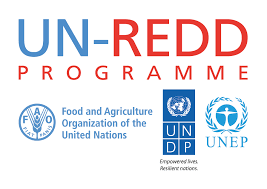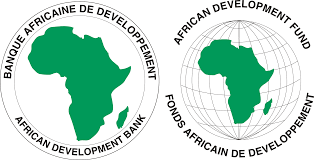At present Senegal is not a REDD+ country. However, in the context of this project, Senegalese MPs have requested formally to their Environment Ministry to ensure the adhesion of Senegal to UN REDD. In addition, Senegal is a party to international Conventions aligned with REDD+, and has put in place instruments that address issues related to sustainable forest management and conservation.
These include the Emerging Senegal Plan (PES) and programmes and strategies such as the Senegalese Agricultural Cadence Acceleration Strategy Programme (PRACAS), the Community Development Emergency Programme (PUDC), the National Sustainable Development Strategy (SNDD) and the Nationally Determined Contribution (CDN) under the UNFCCC.
A number of administrative, regulatory and legislative instruments to support the development of agriculture, fisheries, livestock and forestry sectors while securing the preservation and sustainable management of forests have been adopted, including laws, codes and charters such as the Agro-Sylvo Pastoral Orientation Act (LOASP), and Acts on Biodiversity and Marine Areas.
Projects in line with REDD+ in Senegal:
A number of development and conservation projects implemented in Senegal have been in line with the REDD+ emission reduction targets linked to deforestation and forest degradation, and sought conservation and sustainable management of forests as well as the strengthening of forest carbon stocks with community engagement.
Between 2014 and 2017 a REDD+ pilot project was implemented in Senegal in the community of Bandafassi: Piloting REDD+ monitoring and the value chains of the
Non-timber forest products to mitigate greenhouse gas emissions in the rural communities of Bandafassi". It was implemented by the National Agency of
Ecovillages (ANEV), AGRO ECO Services, the French National Forest Research Centre (Centre National de Recherches Forestières) (CNRF), Groupe d'Intérêt Economique GIE Wakilaaré I, and the Groupement de Promotion Female (GPF) Foussatawu in partnership with Arbonaut Ltd over a period of 35 months. The funding was provided by the Nordic Development Fund (NDF).
In addition to this, there is a background of programmes and projects aligned with REDD+, usually under the tutelage of the Directorate of Waters, Forests, Hunting, and Soil Conservation (DEFCCS).
The Great Green Wall Initiative for the Sahara and Sahel (GGWSSI) is the most significant among the projects aiming at combating deforestation and forest degradation in Senegal (cfr. section on the GGWI experience in Senegal).
The Programme for Sustainable and Participatory Management of Traditional and Substitution Energy (PROGEDE), in two phases from 1998 to 2004 and from 2007 to 2008, aimed to promote sustainable management of forest resources by local communities and it was funded by the World Bank, the World Environment Fund and the Netherlands, with the participation of the Senegalese government. PROGEDE covered the entire territory of Senegal.
The project Integrated Production Systems for the Sustainable Management of Natural Resources in Middle and Upper Casamance (PSPI) intervened in eight rural communities of the Kolda Region the forest-rich Casamance area: Karantaba, Kolibatang, Nianga, Simbandi Brassou and Tanaff in the Tanaff district; Dioulacolon; Bagadadji in the Dabo district and Diannah Malary in the Diendé district. It had three phases: January 1994 to December 1996, January 1997 to December 2000 and January 2001 to December 2004. This project sought to strengthen the capacity of the decentralized structures competent for the management of natural resources in carrying out their statutory duties. It was funded by Germany.
The Coastal Reforestation Project (PRL) funded by the Japan Agency for International Cooperation (JICA) was a 5-year (2000 – 2005) dune-fixing programme that focused on the Niayes, on Senegal's northern coast. Funding for this project to restore the Niayes forest was negotiated as part of the carbon sequestration component of the Clean Development Mechanism (CDM) under the Kyoto Protocol of the UN Framework Convention on Climate Change.
The Community Integrated Forest Development Project (PRODEFI) was also funded by the Japan Agency for International Cooperation (JICA) between 2000 and 2008.
The Forest Development Support Program (PADF) aimed to conserve forest potential and socio-ecological balances, as well as meet the needs of people for goods and services provided by forests, wooded areas and trees outside forests. It was funded by the Netherlands. The regions of intervention were Thies, Saint Louis, Diourbel, Fatick, Louga, Kaolack and the department of Vélingara.
The project Integrated Ecosystem Management Program in Four Representative Landscapes of Senegal (PGIES) had the aims of:
- promoting integrated ecosystem management (EIG) and biodiversity of global importance at the community level;
- reducing greenhouse gas emissions by sequestration of carbon;
- preventing the degradation of 4 ecosystems chosen to represent the main types of ecosystems in Senegal;
- strengthening the institutional framework and to implant innovative conservation incentives;
- monitoring the impacts of development on biodiversity and carbon balances over a ten-year period from 2002.
It was funded by the Global Environment Fund (WEF) and the United Nations Development Programme (UNDP). The project took place in the wildlife reserves and adjacent sylvo-pastoral Reserves of the Ferlo Steppes; in the National Park Niokolo Koba and forests classified as peripheral in the South-Eastern Sudan-Guinean area; in the Niayes including coastal dunes and the reserve of Guembeul; and in the Saloum Delta National Park, with classified forests and associated mangroves along the Southeastern coastal zone.








